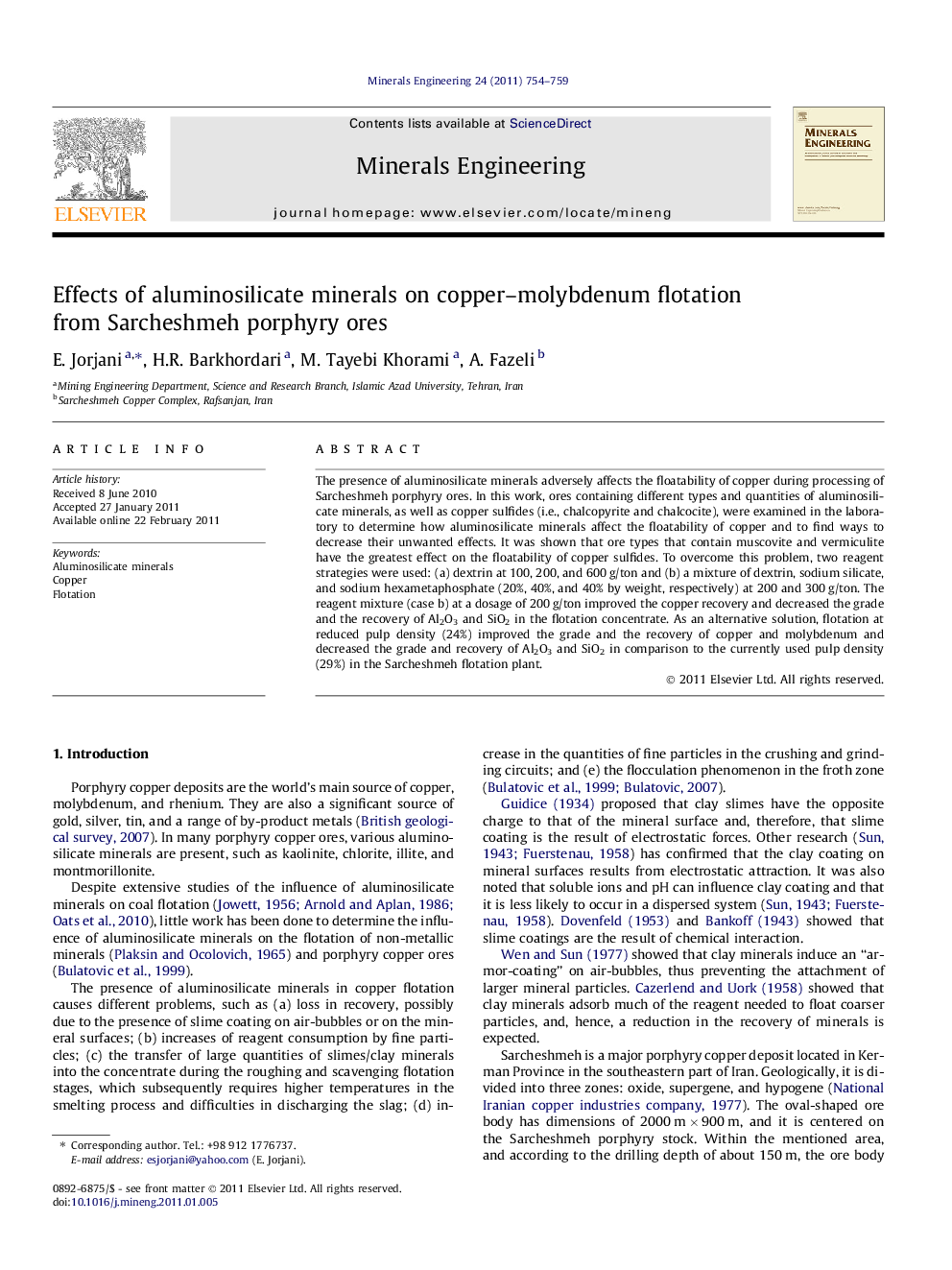| Article ID | Journal | Published Year | Pages | File Type |
|---|---|---|---|---|
| 233743 | Minerals Engineering | 2011 | 6 Pages |
The presence of aluminosilicate minerals adversely affects the floatability of copper during processing of Sarcheshmeh porphyry ores. In this work, ores containing different types and quantities of aluminosilicate minerals, as well as copper sulfides (i.e., chalcopyrite and chalcocite), were examined in the laboratory to determine how aluminosilicate minerals affect the floatability of copper and to find ways to decrease their unwanted effects. It was shown that ore types that contain muscovite and vermiculite have the greatest effect on the floatability of copper sulfides. To overcome this problem, two reagent strategies were used: (a) dextrin at 100, 200, and 600 g/ton and (b) a mixture of dextrin, sodium silicate, and sodium hexametaphosphate (20%, 40%, and 40% by weight, respectively) at 200 and 300 g/ton. The reagent mixture (case b) at a dosage of 200 g/ton improved the copper recovery and decreased the grade and the recovery of Al2O3 and SiO2 in the flotation concentrate. As an alternative solution, flotation at reduced pulp density (24%) improved the grade and the recovery of copper and molybdenum and decreased the grade and recovery of Al2O3 and SiO2 in comparison to the currently used pulp density (29%) in the Sarcheshmeh flotation plant.
Graphical abstractFigure optionsDownload full-size imageDownload as PowerPoint slideResearch highlights► The effect of aluminosilicate minerals on floatability of copper sulfides was evaluated and ways to decrease their unwanted effects tested. ► It was shown that ore types that contain muscovite and vermiculite have the greatest effect on the floatability of copper sulfides. ► A mixture of reagents as well as flotation at reduced pulp density can be used as solutions.
